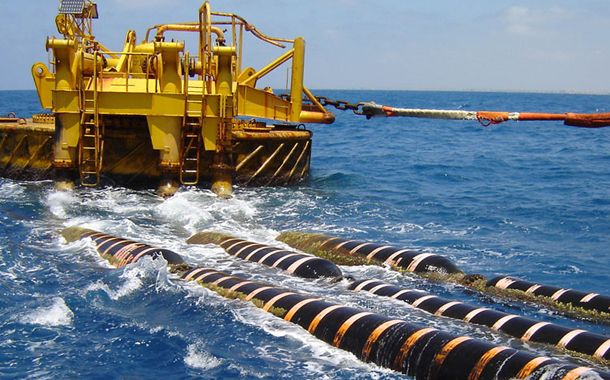West and Central Africa experienced a significant disruption to their internet connectivity, on March 14, 2024, plunging countries across the region into a state of digital blackout.
The outage was attributed to the failure of undersea cables crucial for internet infrastructure, highlighting the vulnerability of reliance on such systems in the modern era.
The Undersea Cable Infrastructure
Undersea cables serve as the lifeline of internet connectivity for regions like West and Central Africa. These cables, laid on the ocean floor, facilitate high-speed data transmission between continents, enabling seamless communication and access to online resources. The affected region heavily relies on these cables for various essential services, including business operations, education, healthcare, and communication networks.
Read also: The Equiano Undersea Cable from Google Arrives in South Africa
Causes and Impact of the Outage
The outage on March 14, 2024, was triggered by the malfunction or damage to critical undersea cables serving the West and Central African region. While the specific cause of the cable failure remains under investigation, incidents such as natural disasters, ship anchors, or cable degradation over time could potentially disrupt connectivity.
The impact of the internet outage was widespread and immediate. Businesses, both large corporations and small enterprises, faced disruptions to their operations, hindering productivity and financial transactions. Educational institutions struggled to conduct online classes and access digital learning resources, disrupting the academic calendar for students. Healthcare services relying on telemedicine and digital health records were severely affected, jeopardizing patient care and medical operations. Additionally, individuals and households faced difficulties in accessing essential online services, including communication platforms, banking services, and entertainment content.
The outage also highlighted the digital divide within the region, with urban areas experiencing more significant disruptions compared to their rural counterparts. While urban centers often have alternative connectivity options, such as satellite internet or mobile networks, rural communities rely heavily on undersea cables for their internet access. As a result, rural areas faced prolonged isolation from the digital world, exacerbating existing disparities in access to information and opportunities.
In response to the internet outage, efforts were swiftly undertaken to restore connectivity and mitigate the impact on affected communities. Telecommunication companies worked around the clock to identify and repair damaged cables, employing specialized vessels and equipment for underwater repairs. Additionally, temporary alternative solutions, such as satellite internet and mobile hotspots, were deployed to provide interim connectivity while repairs were underway.
The incident served as a wake-up call for policymakers, businesses, and technology stakeholders regarding the need for diversified internet infrastructure and enhanced resilience measures. Investments in redundant cable systems, improved monitoring and maintenance practices, and the development of alternative connectivity options were identified as critical strategies to prevent future disruptions and mitigate the impact of similar incidents.
Furthermore, the outage underscored the importance of international collaboration and cooperation in addressing global challenges related to internet infrastructure. Enhanced coordination among governments, telecommunications providers, and technology firms is essential for building a more robust and resilient internet backbone that can withstand unforeseen disruptions and ensure uninterrupted connectivity for communities worldwide.
The internet outage that affected West and Central Africa on March 14, 2024, shed light on the vulnerabilities inherent in the region’s reliance on undersea cables for connectivity. While the incident caused significant disruptions to businesses, education, healthcare, and daily life, it also spurred efforts to enhance resilience and diversify internet infrastructure. By learning from this experience and implementing proactive measures, stakeholders can work together to build a more resilient digital ecosystem that ensures equitable access to information and opportunities for all.




